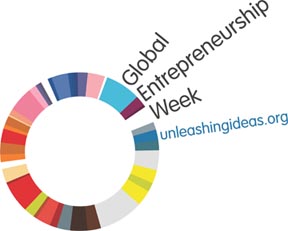This November, young people around the globe will get together to change the world. To celebrate the vital role entrepreneurs play in innovation, job creation and economic recovery, Commonwealth Capital Advisors is participating in Global Entrepreneurship Week on Nov. 16 – 22, 2009 to inspire, connect, mentor and engage young people.
Commonwealth Capital Advisors, an 11 year old American investment banking advisory firm serving entrepreneurs worldwide, will give away 1 million e-books explaining to aspiring entrepreneurs how to raise enough capital to start a business. It is the only resource available online that shows Entrepreneurs the whole process so they can successfully get the capital they need without wasting time or money where others fail.
Co-founded in 2008 by the Ewing Marion Kauffman Foundation in the United States and Make Your Mark, a business-led government-backed campaign in the United Kingdom, Global Entrepreneurship Week will connect young people through local, national and global activities designed to help them explore their potential as self-starters and innovators. Students, educators, entrepreneurs, business leaders, employees, non-profit leaders, government officials and others will participate in a host of activities that include virtual and face-to-face events, large-scale competitions and intimate networking gatherings.
 In 2009, the Week is estimated to exceed the 3 million people and 8,800 organizations around the globe that participated in the inaugural Global Entrepreneurship Week in 2008. Already, more than 650 organizations in more than 80 countries have signed up.
In 2009, the Week is estimated to exceed the 3 million people and 8,800 organizations around the globe that participated in the inaugural Global Entrepreneurship Week in 2008. Already, more than 650 organizations in more than 80 countries have signed up.
“Our primary purpose is to increase every entrepreneur’s probability of raising substantial amounts of capital to the highest degree possible at a mere fraction of the traditional cost without giving up any permanent equity or management control.†Timothy D. Hogan, Chairman & CEO, Commonwealth Capital Advisors.
“The world knows that entrepreneurship is the key to economic recovery, and the next generation of innovators holds that key,†said Carl Schramm, president and CEO of the Kauffman Foundation. “Now more than ever, we need to unleash the creativity and ingenuity of our youth by engaging them in the endless possibilities of entrepreneurship.â€
Details
You can get started by reading the abridged version of the e-book “The Secrets of Wall Street – Raising Capital for Start-Up and Early Stage Companies” the most comprehensive guide to the world of raising capital. To download your personal copy, visit www.CommonwealthCapital.com and enter promotional code gew.
CCA has become the advocate for the entrepreneur by specializing in assisting start-up and early-stage companies raise seed, development and expansion capital through the issuance of securities. They have taken one of the most complex, arduous and expensive processes and reduced it to a simple, easy and inexpensive system. The amounts can range from $100,000 to $50 million for operating companies and up to $500 million for REITs, Film Production Companies, Oil & Gas projects or other Investment Funds. CCA has invested hundreds of thousands of dollars in the legal, accounting and investment banking work product, just to license it to its users and to enable them to have a shot at their dream.
About Global Entrepreneurship Week
With the goal to inspire young people to embrace innovation, imagination and creativity, Global Entrepreneurship Week will encourage youth to think big, turn their ideas into reality, and make their mark. From Nov. 16-22, 2009, millions of young people around the world will join a growing movement to generate new ideas and seek better ways of doing things. Tens of thousands of activities are being planned in dozens of countries. Global Entrepreneurship Week is founded by the Ewing Marion Kauffman Foundation and the Make Your Mark campaign. For more information, visit www.unleashingideas.org, and follow @unleashingideas on Twitter.
Kauffman Foundation
The Ewing Marion Kauffman Foundation is a private nonpartisan foundation that works to harness the power of entrepreneurship and innovation to grow economies and improve human welfare. Through its research and other initiatives, the Kauffman Foundation aims to open young people’s eyes to the possibility of entrepreneurship, promote entrepreneurship education, raise awareness of entrepreneurship-friendly policies, and find alternative pathways for the commercialization of new knowledge and technologies. It also works to prepare students to be innovators, entrepreneurs and skilled workers in the 21st century economy through initiatives designed to improve learning in math, engineering, science and technology. Founded by late entrepreneur and philanthropist Ewing Marion Kauffman, the Foundation is based in Kansas City, Mo. and has approximately $2 billion in assets. For more information, visit www.kauffman.org, and follow @kauffmanfdn on Twitter.
Make Your Mark
Make Your Mark is the campaign to give young people in the UK the confidence, skills and ambition to be enterprising – to have ideas and make them happen. Run by Enterprise Insight, which was founded by the four leading UK business membership organisations – the British Chambers of Commerce, the CBI, the Federation of Small Businesses and the Institute of Directors. Their Director-Generals sit on our board, which is chaired by entrepreneur Peter Jones, from BBC’s Dragon’s Den. It is supported by the Department for Business, Innovation and Skills and endorsed by the Prime Minister, Gordon Brown.
Via EPR Network
More Financial press releases


















